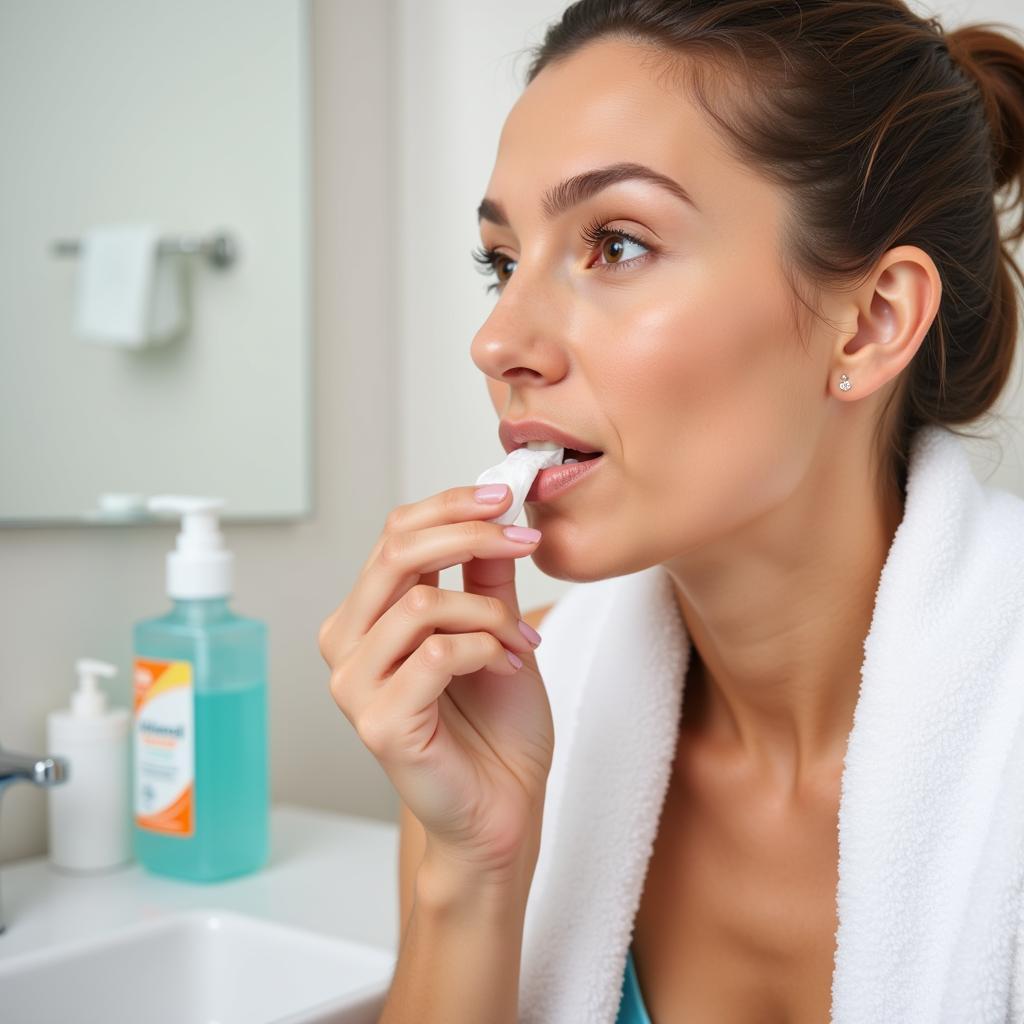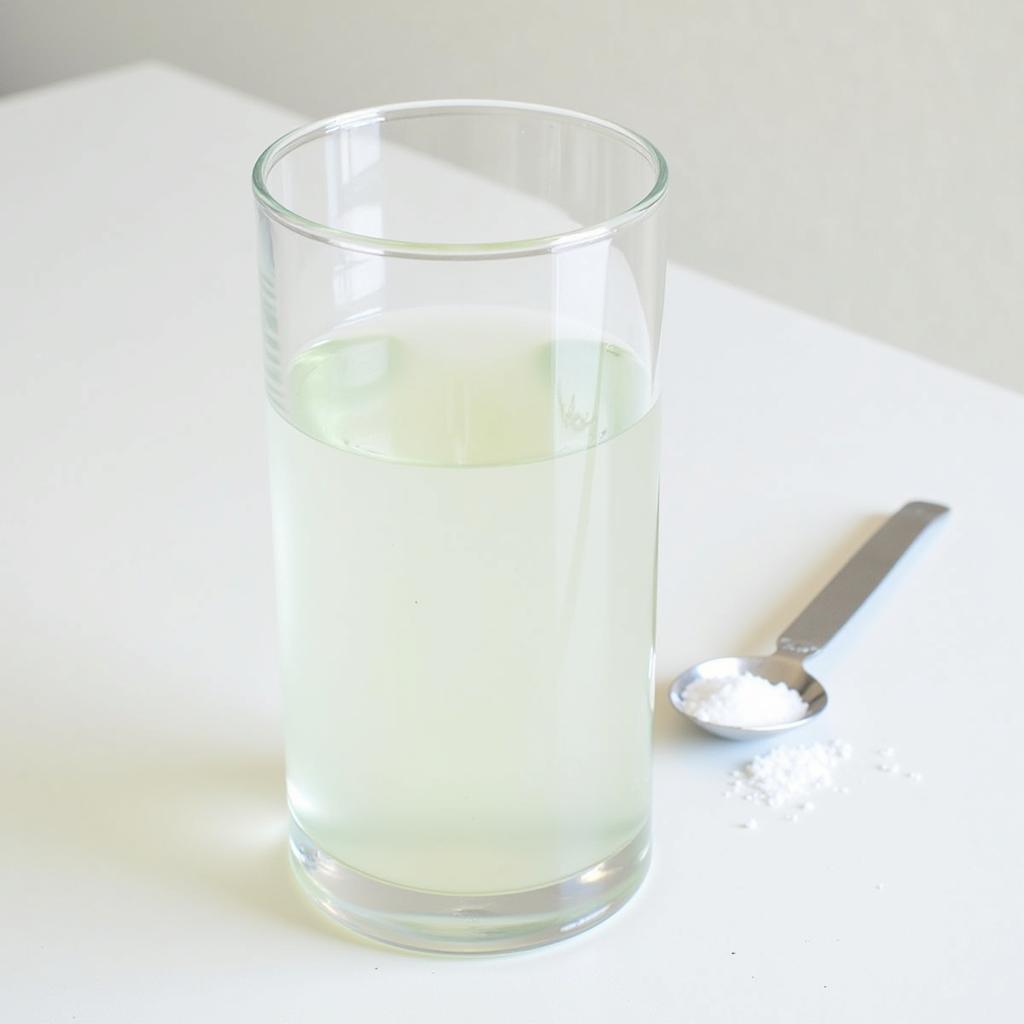Recovering from a tooth extraction requires careful attention to oral hygiene, but you might be unsure about what products are safe to use. Many people wonder, “Can I use alcohol-free mouthwash after tooth extraction?” The answer isn’t always straightforward. While alcohol-free mouthwash seems like a gentler option, it’s essential to understand the dos and don’ts of post-extraction care to ensure proper healing and avoid complications.
Understanding the Risks of Using Mouthwash After Extraction
After a tooth extraction, a blood clot forms at the extraction site, which is crucial for healing. Disrupting this clot can lead to a painful condition called dry socket, delaying the healing process.
Here’s why using mouthwash, even alcohol-free varieties, can be risky:
- Irritation: The ingredients in mouthwash, though alcohol-free, can still irritate the extraction site, potentially disrupting the blood clot.
- Delayed Healing: The chemicals in mouthwash might interfere with the natural healing process of the gums.
- Increased Sensitivity: The extraction site is particularly sensitive after the procedure, and mouthwash can cause discomfort or a burning sensation.
 Woman rinsing her mouth with alcohol-free mouthwash
Woman rinsing her mouth with alcohol-free mouthwash
When Can I Use Alcohol-Free Mouthwash After Tooth Extraction?
Generally, dentists advise against using any mouthwash, including alcohol-free versions, for the first 24 hours after a tooth extraction. After this initial period, you can usually rinse gently with a saltwater solution.
Ask your dentist when it’s safe to start using alcohol-free mouthwash. They might recommend waiting a few days to a week, depending on the complexity of the extraction and your individual healing progress.
What Are the Alternatives to Mouthwash After Tooth Extraction?
While you wait for the green light to use mouthwash, here are some safe and effective alternatives to maintain oral hygiene after tooth extraction:
- Saltwater Rinse: Dissolve ¼ teaspoon of salt in a cup of warm water. Gently swish this solution around your mouth for 30 seconds, focusing on the extraction site, then spit it out. Repeat this 2-3 times daily.
- Prescribed Antiseptic Rinse: Your dentist may prescribe a special antiseptic mouthwash specifically designed for post-extraction care. Follow their instructions carefully.
 A glass of saltwater rinse on a table
A glass of saltwater rinse on a table
Tips for Oral Care After Tooth Extraction
Besides rinsing, follow these tips to promote healing and prevent infection:
- Brush Gently: Brush your teeth as usual, but avoid the extraction site for the first few days.
- Avoid Straws: The suction from using straws can dislodge the blood clot.
- Eat Soft Foods: Stick to soft foods that require minimal chewing for the first few days.
- Stay Hydrated: Drinking plenty of water helps keep your mouth clean and promotes healing.
When to See Your Dentist
Contact your dentist immediately if you experience any of the following:
- Severe pain that doesn’t subside with pain medication
- Bleeding that doesn’t stop after applying pressure for 10-15 minutes
- Foul smell or taste in your mouth
- Signs of infection, such as fever or swelling
Remember, following your dentist’s instructions is crucial for successful healing after a tooth extraction. While alcohol-free mouthwash might seem harmless, it’s best to err on the side of caution and consult your dentist before using it.